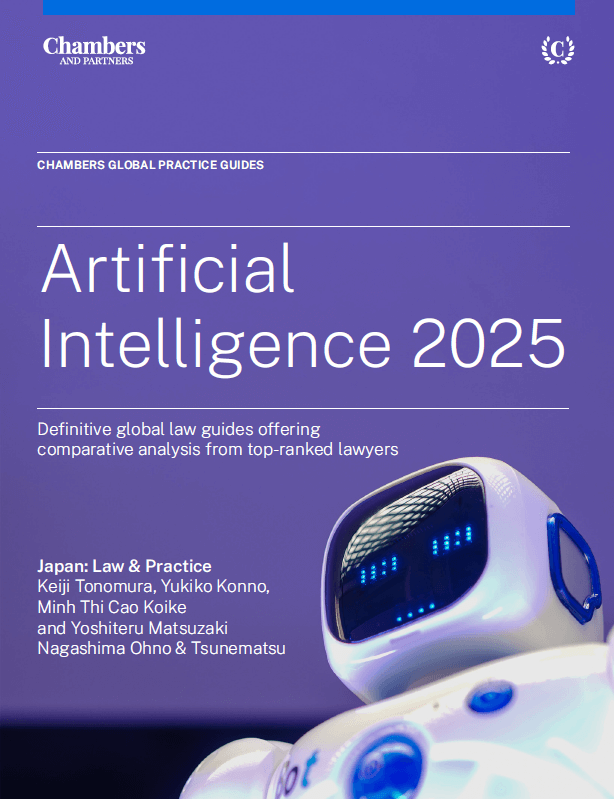
NO&T Asia Legal Review
In recent years, artificial intelligence (“AI”) has become the forefront of innovation. The ability of AI systems to continuously “learn” from analyzing vast and multiple data sets has made it a powerful and indispensable tool for businesses. However, as companies are using more sophisticated AI technologies within their organizations, there are also rising concerns about the misuse of AI and the risk it poses on data privacy.
The rapid advancements in the field of AI admittedly outpace the development of AI regulatory frameworks across jurisdictions. For the Philippines, while there is no legislation on AI that has been enacted as of date, the National Privacy Commission of the Philippines has, on 19 December 2024, issued Advisory No. 2024-04, or the Guidelines on the application of the Data Privacy Act of 2012 and its implementing rules and regulations on AI systems processing personal data (the “Advisory”).
The Advisory seeks to provide guidance on the applicability of data privacy principles with respect to the processing of personal data in the development or deployment, including training and testing of AI systems, and highlights obligations of personal information controllers (“PICs”) when using such AI systems.
Based on the Advisory, among the obligations of PICs when using AI systems to process personal data is to observe:
Consistent with the data subject’s rights to be informed, PICs must clearly explain to the data subject the purpose and risks associated with processing using the AI systems, the expected outputs and impacts of the AI systems, as well as the dispute mechanisms available, among others.
Since PICs remain primarily accountable for compliance with the Data Privacy Act of 2012 and for personal data under their control and custody, they are required to institute effective governance mechanisms, as may be appropriate under the circumstances, that ensure responsible and ethical processing of personal data by AI systems, even when processing activities are subcontracted or outsourced to their personal information processors.
These governance mechanisms can include the conduct of privacy impact assessments, integration of privacy-by-design, privacy-by-default, or common industry security standards, creation of a dedicated AI ethics board, and continuous monitoring or retraining of the AI systems. Further, when the AI systems involve automated decision making (i.e., use of wholly or partially automated processing operation that serves as the sole basis for making decisions that would significantly affect a data subject) the PICs should implement as additional safeguards, mechanisms that (i) allow for human intervention by individuals with the necessary competence and authority, and (ii) allow the data subjects to question and contest the automated decisions which pose a significant risk to their rights and freedoms.
To maintain fairness in processing, PICs are required to adopt measures that identify, monitor and limit biases of AI systems (e.g., based on systemic, human or statistical bias) so that the processing methods do not become manipulative or unduly oppressive to data subjects. PICs are also prohibited from using misleading practices such as AI washing, where they overstate to the data subjects the involvement of AI systems in their data processing activities.
Prior to processing personal data in the development or deployment of AI systems, PICs should also determine whether there is a lawful basis for processing (e.g., based on consent, legitimate interest, etc.). This requirement applies even if the personal data to be processed is publicly accessible or already made public, since these do not result in such personal data losing the protection extended by the Data Privacy Act of 2012.
PICs should also ensure that personal data processed by AI systems are accurate and up to date and proportionate for the purposes intended by excluding the processing of personal data that is unlikely to enhance the development, deployment, testing, or training of the AI systems.
Finally, PICs should ensure that data subjects will be able to exercise their data privacy rights before, during, and after the development or deployment of the AI systems. Privacy-Enhancing Technologies (e.g., encryption, anonymization, access controls, etc.) are mechanisms recommended by the Advisory to be adopted by PICs to ensure proper exercise of the data subject’s rights while maintaining responsible and ethical processing of personal data.
Although there may be a need for more robust laws that address the other evolving risks and challenges posed by AI innovation, in so far as AI intersects with data privacy, the Advisory signals the importance of balancing the protection of data privacy rights and the continued development of AI systems. It also serves as a reminder to PICs of the critical role they play in achieving responsible and ethical use of AI systems with respect to processing of personal data and ensuring that AI is used as a tool to enhance data protection.
This newsletter is given as general information for reference purposes only and therefore does not constitute our firm’s legal advice. Any opinion stated in this newsletter is a personal view of the author(s) and not our firm’s official view. For any specific matter or legal issue, please do not rely on this newsletter but make sure to consult a legal adviser. We would be delighted to answer your questions, if any.


Hoai Truong


(August 2025)
Keiji Tonomura, Yoshiteru Matsuzaki (Co-author)


(July 2025)
Ryo Okubo, Yu Takahashi, Uchu Takehara, Naoto Obara (Co-author)


(June 2025)
Keiji Tonomura, Yukiko Konno, Minh Thi Cao Koike, Yoshiteru Matsuzaki (Co-author)


Hoai Truong


(August 2025)
Keiji Tonomura, Yoshiteru Matsuzaki (Co-author)


(June 2025)
Keiji Tonomura, Yukiko Konno, Minh Thi Cao Koike, Yoshiteru Matsuzaki (Co-author)


(April 2025)
Keiji Tonomura, Akira Komatsu (Co-author)


Shunsuke Minowa, Poonyisa Sornchangwat (Co-author)


(June 2025)
Hayata Matsunaga (Co-author)


(June 2025)
Keiji Tonomura, Yukiko Konno, Minh Thi Cao Koike, Yoshiteru Matsuzaki (Co-author)


Yuan Yao Lee


Claire Chong, Nozomi Kato (Co-author)


Yuan Yao Lee


Hoai Truong


Nopparak Yangiam, Parot Promkam (Co-author)


Claire Chong, Nozomi Kato (Co-author)


Yuan Yao Lee


Hoai Truong


Nopparak Yangiam, Parot Promkam (Co-author)


Patricia O. Ko


Patricia O. Ko


Patricia O. Ko


Patricia O. Ko